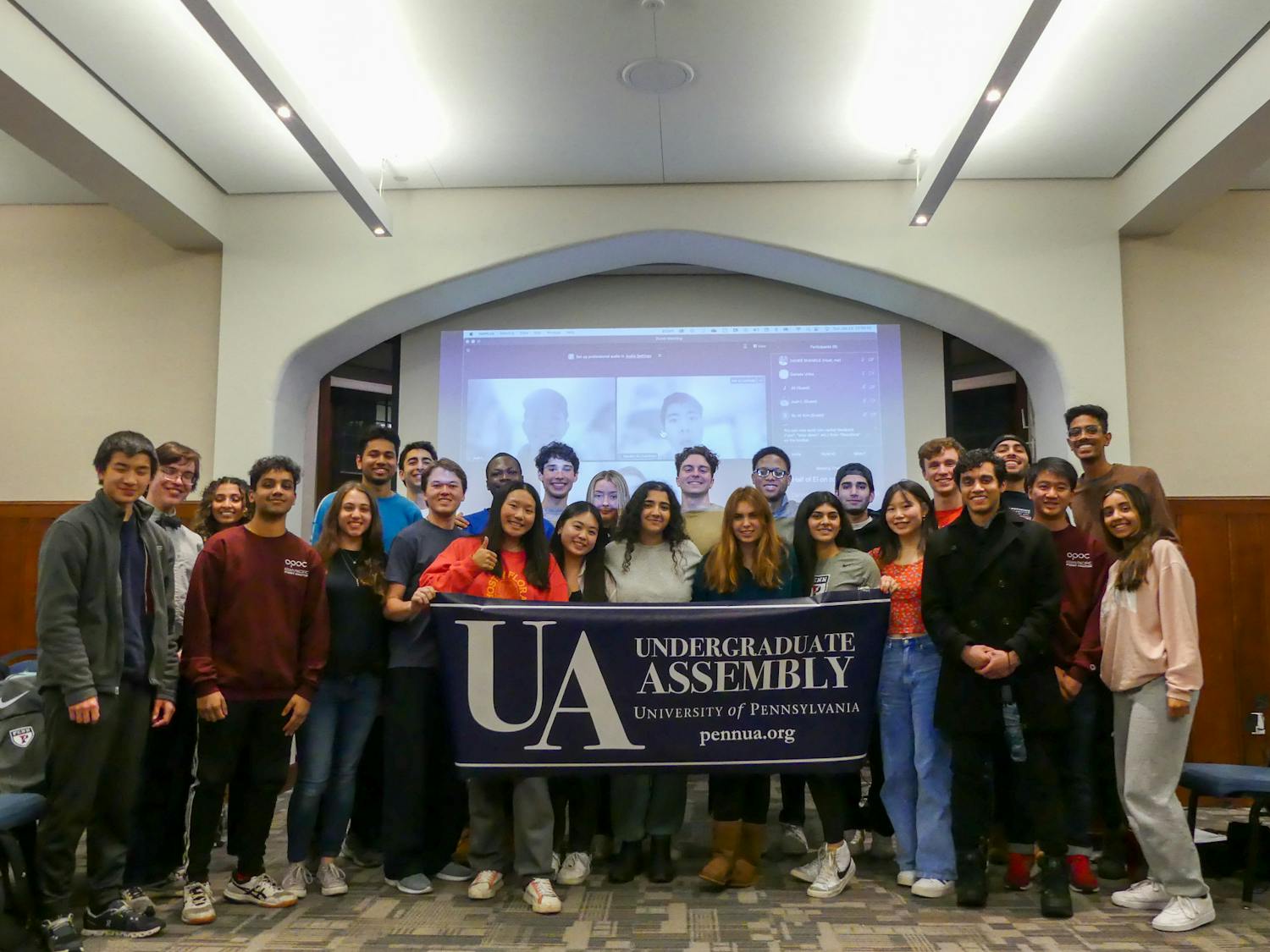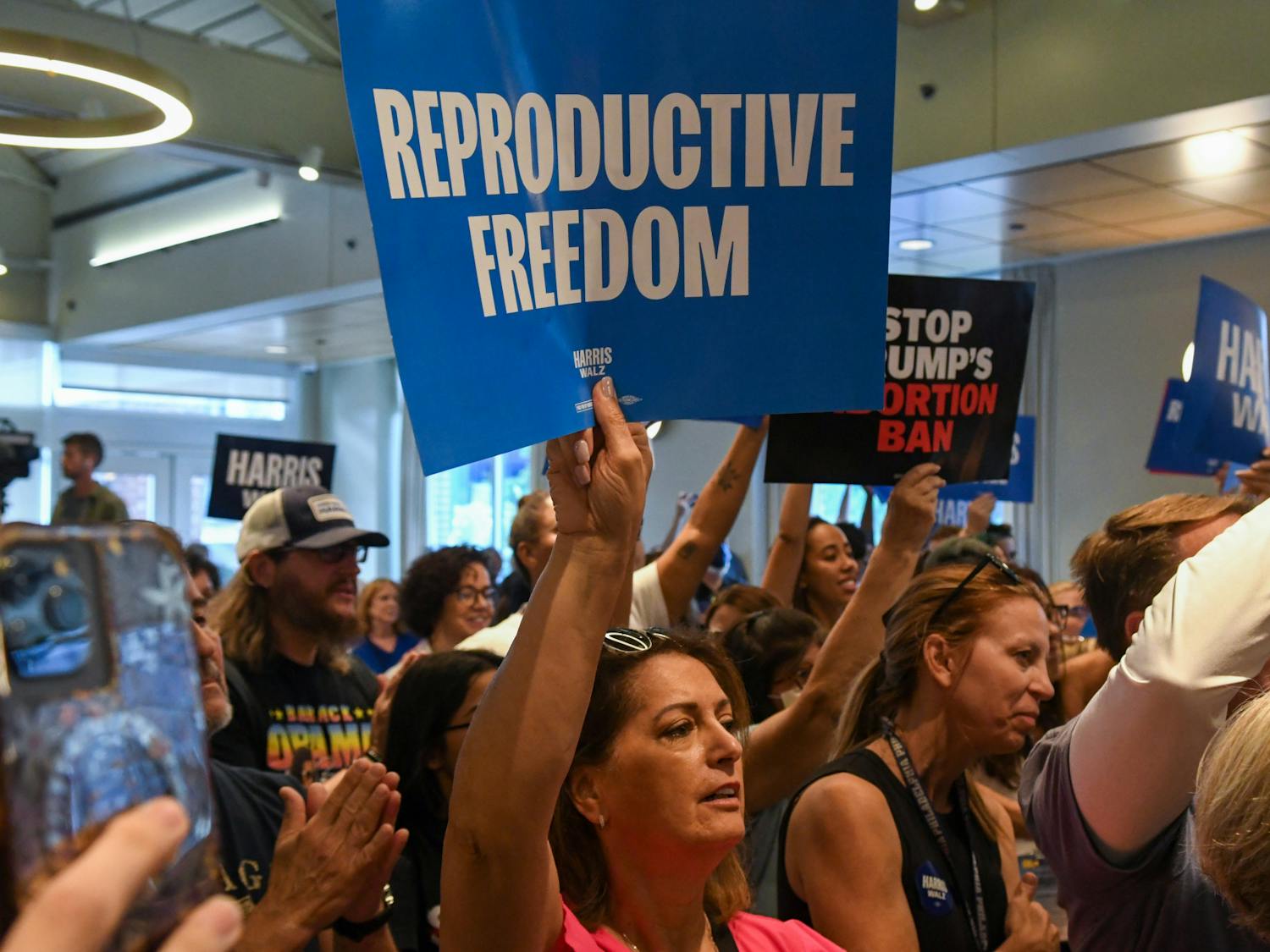A few hundred miles to our south, deep in Appalachian Virginia, a furor has erupted over one of the most common hiring practices in higher education.
In pursuit of the best and brightest faculty and administrators, universities dangle all sorts of carrots in front of the eyes of the coveted and recruited -- more money, fancy office space, new centers and research institutes founded solely with them in mind and, of course, jobs for their spouses.
That last lure is perhaps not as controversial as it should be, especially when the current paucity of academic positions is considered. But it's become a fact of life everywhere, and it's not uncommon at Penn, nor at Virginia Tech.
When Tech went looking for a new dean for its graduate school, it turned to Karen DePauw, then in the same position at Washington State University. According to the Chronicle of Higher Education, DePauw, who had been at Washington State for two decades, had a simple request -- that the university find a job for her partner, who at the time was an English professor, and an acclaimed teacher, at Washington State. Virginia Tech said it would do what it could, as it does for every similar situation.
Fortunately, it seemed that there was a perfect fit. Tech's English Department was in need of an African-American literature scholar, DePauw's partner's field. The school enthusiastically offered both jobs. DePauw and her partner accepted, and began preparations to move across the country.
It seemed a success story for Virginia Tech. The school, emphasizing its commitment to diversity and gender equity, had grabbed their top choice for graduate dean and filled a hole in a key academic department. But it was not to be.
When Tech's Board of Visitors -- its equivalent to Penn's Board of Trustees -- met to approve the new faculty hires, DePauw's partner was rejected while another new faculty member's partner was approved, along with 10 others.
None of the administrators or faculty members interviewed by the Chronicle could remember any similar action by the Board in 30 years. What's more, the Board refused for two months to explain its motive. The reason cited? Budgetary woes.
But why had budgetary woes not forced the Board's hand on the other hires that day? Why had the shortfall affected the hire most necessary to lure the dean Tech wanted? What was unique about DePauw and her partner?
Well, among academic couples, there was something slightly uncommon -- DePauw's partner isn't a husband, but a woman, Shelli Fowler.
For all of the strides gays and lesbians have made in the last few decades toward having their rights as human beings, for all of the battles they have fought so valiantly and often with so little success, the latest front in anti-gay discrimination is this, the seemingly mundane hiring of a highly sought administrator.
This isn't typical hiring discrimination. It isn't even a typical battle over gay marriage. Viriginia Tech's administration was enthusiastic about its new faculty members. Karen DePauw wasn't entitled to the deanship -- she was recruited. Tech didn't have to bend over backward to find a job for Shelli Fowler -- it was staring it in the face, a perfect fit.
Nothing forced Tech to pick DePauw and Fowler. It was doing what it thought was best for the University. Why would the Board of Visitors intervene?
Budget concerns don't seem to be that plausible, especially since it took the Board so long to pick it as its excuse. And if the situation weren't fishy enough to begin with, there is the matter of an anonymous e-mail.
What's most deeply concerning about the e-mail, which apparently discouraged Board members from voting for Fowler, is not that it exists, a fact confirmed for the Chronicle by Tech's president, Charles Steger, or that it expresses anti-gay sentiment. It's that when asked if anti-gay sentiment affected the decision, John Recovich, rector of the Board of Visitors, refused to categorically deny it.
It's impossible to say without a doubt that homophobia played the key role in the Board's refusal to hire Fowler, but it's certainly fair to say that it looks like it did. And if it in fact did, it's a terrible blow to Virginia Tech in more ways than is possible to list here.
It has lost a needed English professor. It has installed a new graduate dean who can't help but have a bad taste in her mouth. And it's shot to hell any pretensions it may have had about being inclusive.
No one who's honest with himself could possibly pretend that homophobia has been wiped out or that gays and lesbians never face discrimination. But that Virginia Tech's governing body, composed of the people who ought to be more dedicated to the success of the institution than anyone else, would so willingly and so gutlessly shoot their own school in the foot is a remarkable tragedy. And an important reminder that we must be ever vigilant, because sometimes discrimination shows up in the most unlikely places.
Jonathan Shazar is a senior History and Political Science major from Valley Stream, N.Y., and editorial page editor of The Daily Pennsylvanian.








